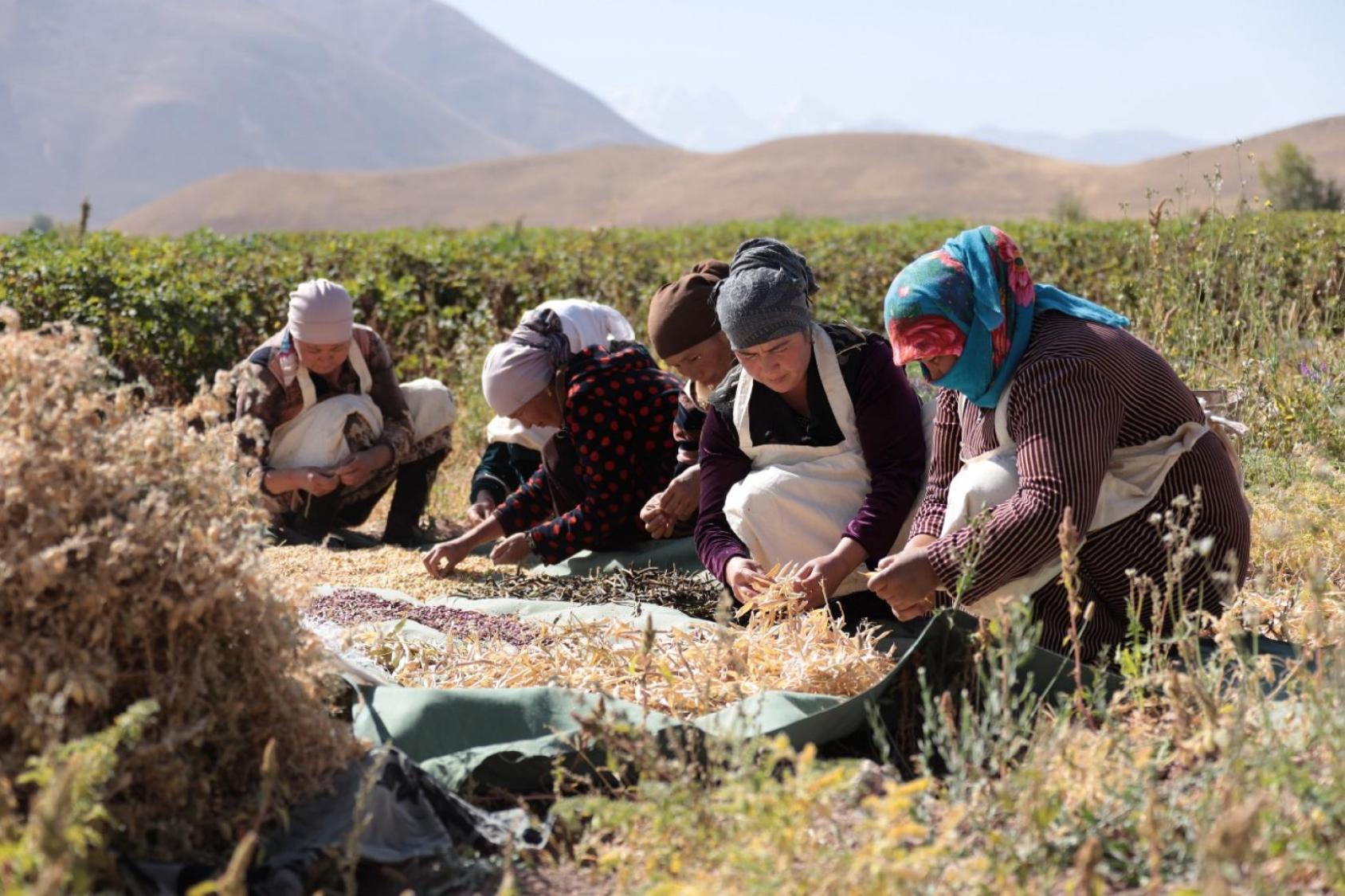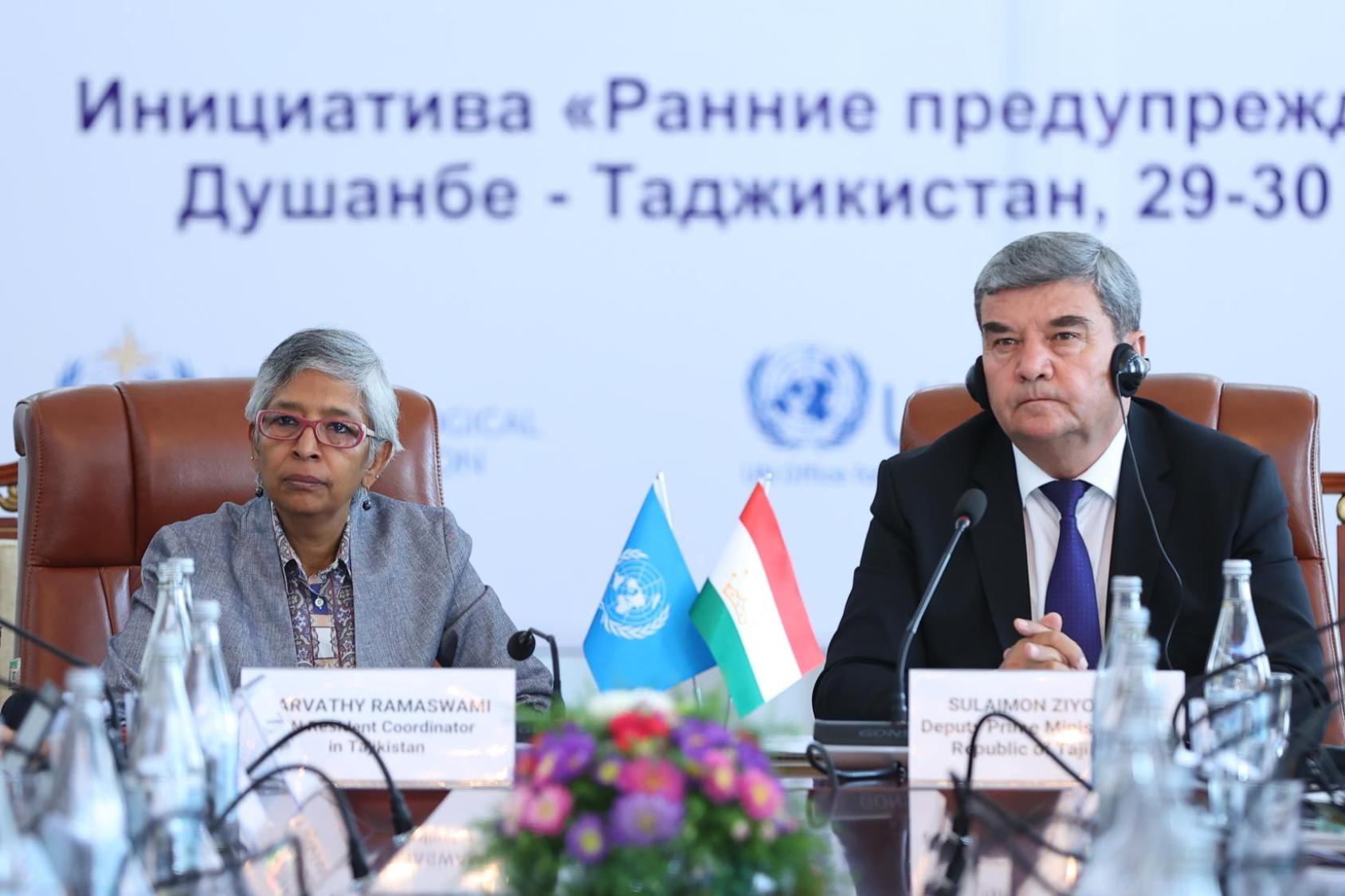Tajikistan: A Unified Approach to Tackling Climate Risks

Tajikistan’s scenic landscapes and vulnerable communities face a relentless threat: natural disasters. Earthquakes, floods, and landslides—intensified by climate change—displace thousands annually and drain an estimated 1.3 per cent of the country’s Gross Domestic Product (GDP). While measures like reinforcing riverbanks and improving water management have mitigated risks, over 15,000 people remain in harm’s way [1] . Against this backdrop, the United Nations, under the leadership of the Resident Coordinator, is working closely with the Government of Tajikistan to shift from fragmented responses to a unified, impact-driven strategy for resilience.
Collaboration at the core
The UN Sustainable Development Cooperation Framework (2023–2026) anchors Tajikistan’s efforts to tackle interconnected disaster, climate, and environmental risks. Spearheaded by the UN Resident Coordinator, this strategy prioritizes strengthening national institutions and fostering partnerships across government, civil society, and international actors. Central to this is the National Platform for Disaster Risk Reduction—a forum where stakeholders align priorities, share expertise, and coordinate actions.
The Resident Coordinator’s role as a convener and catalyst has been pivotal. By ensuring UN agencies pool their strengths—from disaster preparedness to climate adaptation—the Resident Coordinator has helped streamline efforts that once operated in silos. For example, in 2023, UN support enabled over 67,000 vulnerable people to access sustainable solutions, including climate-resilient farming tools, greenhouses, and irrigation systems. These interventions not only reduced risks but also boosted livelihoods, demonstrating how integrated approaches yield tangible results.

From planning to action
Tajikistan’s National Strategy for Disaster Risk Reduction, aligned with global standards like the Sendai Framework, underwent rigorous review in 2021–2022. With UN support, gaps were identified, and a prioritized 3-year action plan (2023–2028) was developed. This roadmap consolidates projects from all stakeholders, ensuring accountability and adaptability. Crucially, the Resident Coordinator facilitated inclusive dialogues—engaging academia, NGOs, and communities—to ground these plans in local realities.
A landmark initiative is the Early Warnings for All (EW4All) programme, launched in 2023. Co-led by the Resident Coordinator and the Deputy Prime Minister, this effort unites UN agencies (UN Office for Disaster Risk Reduction, World Meteorological Organization and International Trade Centre), government bodies (Committee of Emergency Situations and Civil Defence, Committee of Environmental Protection, Agency of Hydrometeorology, Committee of Television and Radio, Communication Service), and the International Federation of Red Cross to build systems for predicting disasters and alerting communities. A draft roadmap (2024–2027) outlines steps to enhance monitoring, communication, and response capacities. Once finalized, it will ensure even remote villages receive timely warnings—a lifeline for a country where seconds can mean survival.

Preparedness that saves lives
When disasters strike, coordination is critical. The UN-supported Rapid Emergency Assessment and Coordination Team (REACT), co-chaired by the Resident Coordinator and Tajikistan’s emergency services, ensures swift, organized responses. In 2023, REACT conducted simulation exercises to test refugee response protocols and evacuation plans. These drills have already translated into real-world readiness: communities in high-risk zones now have clearer pathways to safety, and local authorities are better equipped to act decisively.
Beyond immediate response, the UN Country Team has championed linking disaster prevention with long-term development. For instance, watershed management plans and anti-pollution measures for mining sites address both environmental degradation and disaster risks. By integrating these efforts, Tajikistan is not only averting crises but also safeguarding ecosystems that millions depend on.
The road ahead
Progress is evident, but challenges persist. Climate change continues to outpace existing safeguards, and funding gaps threaten scalability. Here, the Resident Coordinator’s role as an advocate and broker is key. By aligning UN resources with government priorities and leveraging global partnerships, the UN is helping Tajikistan secure investments for large-scale resilience projects.
Looking ahead, the focus remains on inclusivity. The UN’s community-based initiatives ensure women, smallholder farmers, and marginalized groups have a voice in shaping policies that affect their lives. Meanwhile, the National Platform and REACT mechanisms, bolstered by the Resident Coordinator’s oversight, guarantee that disaster planning remains dynamic and responsive.
Tajikistan’s journey toward resilience underscores the results of coordination. By bridging disaster risk reduction, climate action, and sustainable development, the UN—under the Resident Coordinator’s leadership—has transformed how Tajikistan confronts crises. From early warning systems to livelihood programmes, the results speak for themselves: safer communities, stronger institutions, and a future where risks are met with resolve.
As climate threats escalate, this collaborative model offers a blueprint not just for Tajikistan, but for nations worldwide. The stakes are high, but with continued partnership and leadership, resilience is within reach.
This article originally appeared on undrr.org, read it here.
[1]Chairman of the Committee for Emergency Situations and Civil Defense Rustam Nazarzoda, reported in Asia Plus, 7 February 2024













